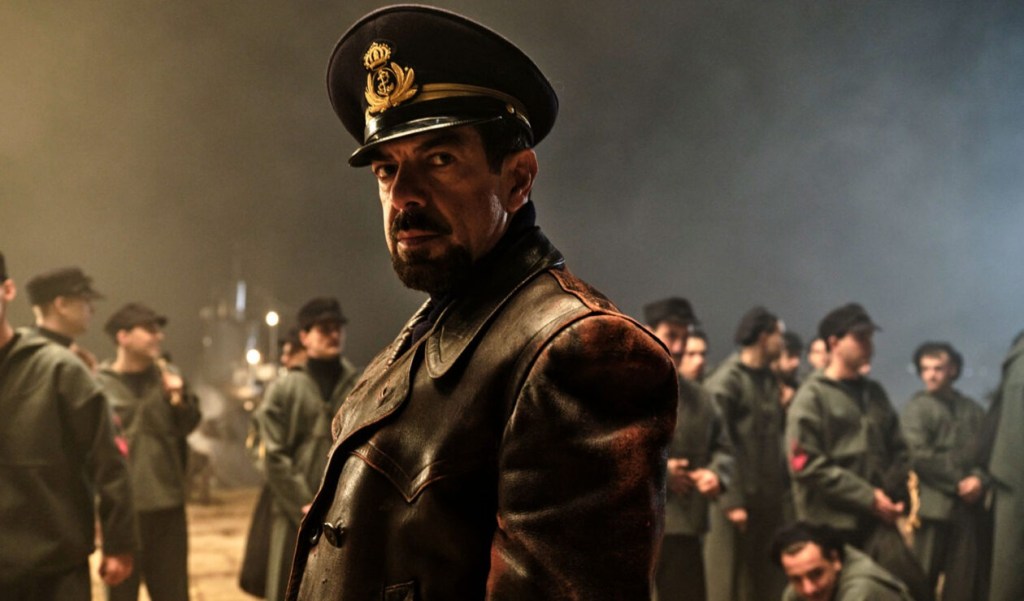Film review: Comandante
Inspired by a true story, this romanticised tribute to the humanity of a crew of wartime submariners celebrates Italian cultural identity.

The Italian Royal Navy comandante Salvatore Todaro, played with warmth and gravitas by the wonderful Pierfrancesco Favino (Nostalgia), takes his submarine to sea in September 1940, leaving on the dock a crewman he randomly turfed off. Three days later the sailor comes down with peritonitis and would have died had he gone aboard.
Not only is Todaro a commander of men, he is a wizard of the sea. He has a wife and child, but knows it doesn’t take a soothsayer to predict that by the end of the war, he won’t be coming home.
He is physically broken from a seaplane crash and wears a body brace but is also a leader who works alongside his men and welcomes each aboard by giving them their own knife. Submariners don’t fight? Bullshit, he says.
Being Italian, Todaro has on board a chef who can cook all the regional dishes from Milan to Palermo. After a tense disentanglement with a mine that cost a volunteer his life and leaves the rest of the crew stricken, Todaro orders gnocchi for dinner.
The Italian crew distinguish themselves from their Nazi allies by following a divergent moral code. The Germans attack in packs but Todaro likes his boat, the Cappellini, to work alone.
After way too much scene-setting and a meandering start to the story in the Straits of Gibraltar, the submarine moves to the Atlantic and the real action begins. Todaro comes across an armed merchant ship sailing without lights and with a canon on deck. It flies the neutral Belgian flag yet launches a sudden attack against the Cappellini, which fights back and sends it to the bottom of the sea.
Some of the ship’s men survive, creating a wartime dilemma. “The Nazis leave them in the sea. What do we do?” asks one of the officers. “Pull them aboard,” says the comandante. He believes the war is a fight between machines, not between men at sea, all of whom are only ever at arm’s length from death.
Todaro’s decision to cram 26 Belgians into an overcrowded submarine has consequences as the story becomes one of a triumph of humanity. They are forced to sail above water for three days because to submerge would flood the conning tower where some of the rescued are sheltered. And not all of the Belgians are friendly.
The film is blessed with Favino’s warmth and integrity, and manages to stay ahead of being too pompous and self-adoring. It also looks authentic, and the interior of the Cappellini – filmed on a fully reconstructed submarine – is a grimy, sweaty mess where frightened men sleep head to toe and everything is chaos.
Subscribe for updates
Directed and co-written by Edoardo de Angelis and selected to open last year’s Venice Film Festival, Comandante is anchored by a tense score co-written by Massive Attack’s Robert Del Naja. For all its old-fashioned triumphalism and brash portrayal of Italian machismo, it adds to the mystique of men who fought at sea.
Comandante is showing as part of the St Ali Italian Film Festival, currently screening nationally. See session times here.

